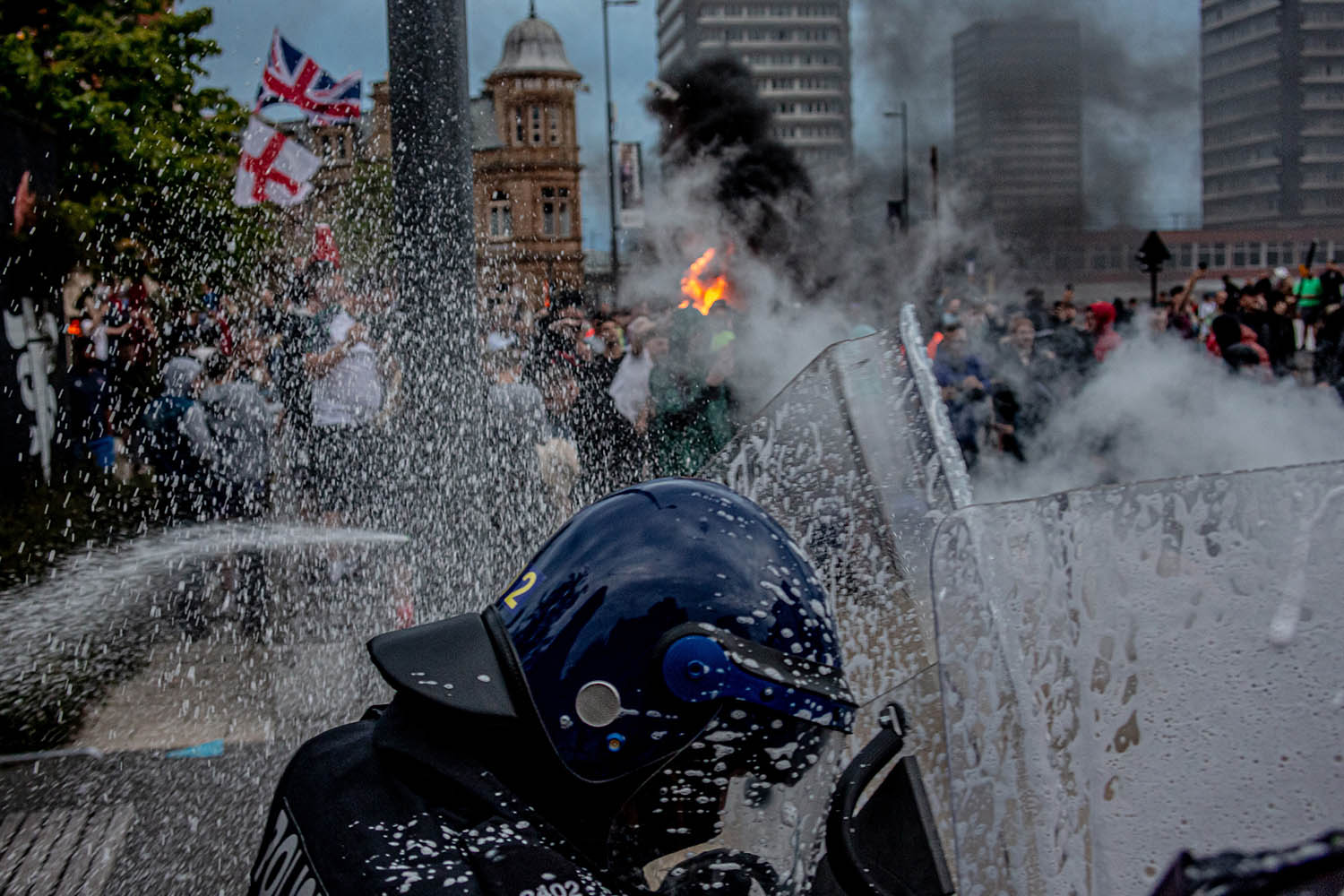
Keir Starmer condemns “far-right thuggery” in dozens of cities over the weekend.
Keir Starmer said yesterday that those involved in “far-right thuggery” in dozens of cities over the weekend would soon regret their involvement.
So what? Previous warnings didn’t work. The British prime minister announced a nationwide violence disorder unit last week, after protests broke out following the murder of three little girls at a dance class in Southport. He hoped the threat of sharing intelligence and advanced technologies between police forces would deter further rioting. Instead:
- violent protests and disorder took place in at least 18 towns and cities across the UK;
- mosques were offered “emergency security” due to ongoing concerns of Islamophobic attacks; and
- police made 147 arrests in less than 24 hours, with more expected as individuals are identified.
The X factor. The riots have been organised and livestreamed on social media platforms, which helped foment the initial unrest by allowing disinformation about the Southport murders to spread largely unchecked, amplified by the likes of Tommy Robinson and Andrew Tate.
Elon Musk, who runs X, where the false claim that the Southport suspect was a Muslim asylum-seeker was rapidly disseminated last week, has been silent on his site’s role in the riots. Instead the billionaire replied to a post suggesting the disorder was caused by mass migration and open borders by writing that “civil war is inevitable”. It’s worth emphasising that the suspect was born in Britain to Rwandan parents.
In Rotherham, a far-right mob, some draped in England and Union Jack flags, started a fire outside a Holiday Inn housing asylum-seekers; a crowd smashed a glass door to gain access to the hotel, chanting “get them out”. One police officer was knocked unconscious. Violence also erupted in:
- Hull: rioters looted shops and shouted “stop the boats” outside another hotel housing asylum-seekers. TikTok videos filmed elsewhere showed demonstrators surround a grey car before smashing it up and appearing to attack the man inside. In one clip of the incident, rioters yell “p***”.
- Sunderland: a priest reported that rioters had tried to smash a gravestone, presumably to use as projectiles; demonstrators attacked a mosque and set a Citizen Advice building on fire.
- Bolton: members of the Asian community cried Allahu Akbar – God is greatest – at far-right demonstrators outside the town hall. Police separated the two groups as they threw bottles and launched fireworks at each other.
- Liverpool: rioters set fire to Spellow Hub library, which also doubles up as a foodbank. CCTV footage also showed looters ransacking a local shop. The owner told the Liverpool Echo that his pet canaries were taken and that when he got to the scene people laughed in his face.
- Middlesborough: a video showed men inspecting drivers through their car windows, asking “are you white” and “are you English” before letting them pass. Rioters smashed house windows and targeted a road with shops run by foreign nationals; some business owners reportedly fought back.
Starmer has vowed to “do whatever it takes to bring these thugs to justice”, saying those who took part “whether directly or those whipping up this action online and then running away themselves” would face justice. The prime minister has repeatedly used the term thugs.
But one month into the job, Starmer is facing:
- swelling anti-immigration sentiment, fuelled over years of inflamed political rhetoric and exacerbated by stagnant economic growth;
- the spread of mis- and disinformation on social media, as well as the rise of platforms that enable far-right groups to organise and mobilise behind closed doors; and
- a simultaneous crisis in the country’s prisons, which are running at more than 99 per cent capacity.
Back to the future. Starmer has experience dealing with public unrest. Back in 2011, he was director of public prosecutions when riots broke out after Mark Duggan, a black British man, was shot dead by police officers. It led to civil unrest across the country and more than 3,000 arrests. Starmer kept courts going around the clock, with heavy sentences handed out, in a bid to restore order.
But… even if the government utilises so-called “Nightingale Courts” to fast-track sentencing, there is no guarantee that British prisons will have the space to take them. And unlike in 2011, police and eyewitnesses suggest the rioters are not local to the communities that have been targeted.
What’s more. As in 2011, this year’s wave of unrest is taking place during a heatwave. Rain is forecast and may bring some respite. Tackling the underlying anger of protesters will take longer.










